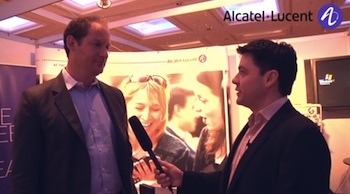To the Small Cells World Forum this week, where the chat was of how the previously niche small cell market can best develop into a constituent part of the het net.
Mobile Europe prepared for this event by hosting its own round table debate, featuring a brace of operators and trio of analysts, which we carry in our latest issue here. We then attended a further round table conversation, hosted by the Small Cells Forum for the press, at which Telefonica UK was represented, along with a host of vendors, including Cisco, Alcatel-Lucent, ip.access and Ubiquisys. Finally, we chaired a debate at the event itself, which will be available to view early next week on the Mobile Europe site, featuring Telecom Italia Mobile, Everything Everywhere andTelefonica UK.
If I could draw a thread out of all these discussions it is that the small cell market is not about technology any more, except it is all about the technology. What do I mean by that? Two things. First, that there is a debate about the overall deployment and cost model for small cells that goes far beyond the cost of the cells themselves. Instead, the envelope of costs that operators must lick and seal down includes site planning and acquisition, power, backhaul, management and maintenance. A lot of these, then, are non-technical but still very tricky issues.
For instance, Telefonica UK’s Rob Joyce described at the Small Cell Forum’s event how his employer was hampered in London’s Westminster by a ruling that only one company is allowed to work up lampposts. They were basically up against a monopoly provider. He said that the operator wants to be able to install a small cell site for under a thousand dollars. In London, though, where it has put small cells down a stretch of street called Exhibition Road, it was thousands, rather than thousand, per site.
The vendors are on the case. Alcatel-Lucent’s hope is that by providing a managed service that takes in all of these aspects, and produces a “playbook” of how to deploy and what to consider – including local authority and commercial negotiations – it can take away a potential barrier to deployment.
You can hear Al-Lu’s pitch in the video linked to below.
So in what sense is the small cell debate about technology? Well, the critical one is around interference management. This is because it speaks directly to attempts by the incumbent macro vendors to safeguard their presence. But also to operators’ concerns about how to handle spectrum re-use. Ericsson is the most “out there” of the macro vendors insisting that a combined macro-micro vendor is the best, even only, way ahead. To be fair, the other vendors have displayed more flexibility, at least in their public messaging. But the path to a standards based approach still needs to be cleared.
If you want to see a discussion of the issues inherent in this co-ordination, interoperability and standards-based signalling between multiple devices on the small cell layer, then the below video, with Nick Johnson of ip.access, is well worth a view. I suspect Johnson probably knows about as much as anyone about the nitty gritty of the issues involved, what the standards bodies need to grasp, and how the operators can best benefit from small cell technology.
One thing that didn’t seem to be up for grabs was that small cells and spectral reuse are required – it really comes down to what volumes we shall see, and in what timescales. Not up for grabs, that is, apart from at one unspecified operator whose people told us that that they didn’t see any use for small cells at all and would just go on splitting their network ad infinitum. Run these heretics out of town!
Keith Dyer
Editor
Mobile Europe



